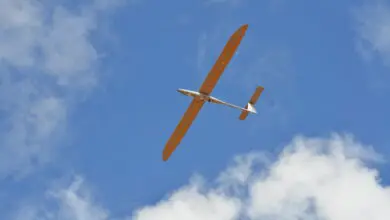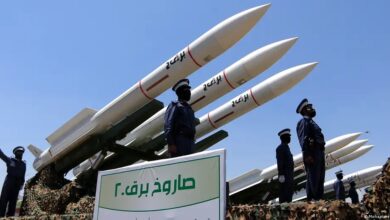The United States has all but threatened the European Union with war – albeit a trade war – over E.U. plans to boost cooperation between member states on military spending.
First reported by Germany’s Der Spiegel and later confirmed by Reuters, the Financial Times and AFP (among others) – although sadly unpublished in full – Under Secretary of Defense for Acquisition, Technology and Logistics Ellen Lord (previously the CEO of U.S. defense contractor Textron Systems) and Undersecretary of State for Arms Control and International Security Andrea Thompson on May 1 sent a letter to the E.U.’s chief diplomat, the High Representative for Foreign Affairs and Security Policy Federica Mogherini outlining U.S. concerns about access to E.U. funds for American corporations.
The undersecretaries wrote of “poison pills” and “restrictive language” in proposed rules for the E.U.’s Permanent Structured Cooperation on Defence and Security (PESCO) and the European Defence Fund that could potentially prevent states that are not E.U. or European Economic Area members from easily accessing new E.U. funding for defense projects.

The €13 billion European Defence Fund sets aside €4.1 billion for research and €8.9 billion for developing military capabilities for the 2021-2027 financial period, and only collaborative projects involving at least three member states or associated countries can receive funding. Meanwhile PESCO, which was formally established in December 2017, allows participating E.U. states to develop joint defense capabilities, invest in shared projects, and enhance the operational readiness and contribution of their armed forces, and a total of 34 PESCO projects have been adopted so far.
Although open to non-E.U. states, their participation must be accepted unanimously, and the E.U. retains control over future development and – perhaps crucially – the export of systems developed using E.U. funds.
Last year, an E.U. official emphasized that the conditions for participation in projects under the European Defence Fund were reciprocal. “To benefit from U.S. funds, firms have to be based in the United States, exclusively employ American personnel and no information can go back to the parent company if it is not based in the United States,” the official told AFP.
But the letter makes clear U.S. concerns about potentially losing dominance in the European arms market.
“The draft EDF regulation and PESCO general conditions represent a dramatic reversal of the last three decades of increased integration of the transatlantic defense sector,” the letter said, adding that the rules “would not only damage the constructive NATO-E.U. relationship we have built together over the past several years but could potentially turn the clock back to the sometimes divisive discussions about E.U. defense initiatives that dominated our exchanges 15 years ago.”
Hinting at economic sanctions, the letter said: “It is clear that similar reciprocally imposed U.S. restrictions would not be welcomed by our European partners and allies, and we would not relish having to consider them in the future.”
It said that “small changes” to the rules surrounding the European Defense Fund could dispel U.S. concerns.
In an undiplomatically worded cover letter, U.S. Ambassador to the E.U. Gordon Sondland said he “would appreciate your response by June 10, 2019.”
“I hope we can avoid contemplating similar courses of action,” Sondland wrote.

Mogherini responds
Reacting on Tuesday, Mogherini was forthright, saying that “a clear and complete reply to the concerns of the U.S. administration” was being prepared, and noting that the “one point that is still under discussion among Member States” is “the participation of third States in PESCO projects.”
“The E.U. is actually much more than the U.S. procurement market for the European Union companies and equipment,” she said, pointing out that “around 81% of international contracts go to U.S. firms in Europe today.”
“In the E.U. there is no ‘Buy European Act,'” she said, an apparent reference to legislation passed in 1933 that required the U.S. government in certain purchases to prefer American-made products, even if an identical foreign-sourced product is cheaper.
“The European Union is and remains open to U.S. companies and equipment,” Mogherini said.
“As I said, the PESCO projects are not substituting nor changing the procurement rules, and are not substituting any other projects that are already ongoing. They are an additional instrument that is aimed at incentivising, increasing cooperation among the Member States.”
“It is not defined to be an instrument for partnership, we have other instruments for partnership.”

Unease with NATO
American displeasure with the rules surrounding access to PESCO and the European Defence Fund has long been evident.
It echoes earlier loud complaints from U.S. President Donald Trump over low defense spending by NATO members, begging the question: does “ensuring NATO interoperability” really mean “Buy American”?
The heavy-handed U.S. approach – threatening sanctions and escalation of the ongoing skirmishes over trade that are already damaging relations, rather than working alongside important allies – appears more likely to entrench those Europeans who favour closer integration and interdependence, closing rather than opening doors for American corporations.
The five largest arms exporters in the five years between 2014 and 2018 were the United States, Russia, France, Germany and China, according the Stockholm International Peace Research Institute.
The two loudest voices in Europe, France and Germany, are vocal proponents of tighter E.U. integration.
France, which is also the world’s fifth-biggest military spender, has been at the forefront of the E.U. defense push. In August 2018, President Emmanuel Macron even suggested that Europe should adopt NATO-style collective defense to give the E.U. “strategic autonomy.”
“Europe can no longer rely on the United States for its security,” Macron said.
But Germany has also called for enhanced defense integration. In 2018, Foreign Minister Heiko Maas urged the E.U. to “form a counterweight” to the U.S., arguing that Europe “can no longer rely on Washington to the same extent” and this presents a historic opportunity to redefine the E.U.’s role and build a “balanced partnership.”
The €13 billion over seven years set aside for the EDF is but a proverbial drop in the ocean in terms of global defense spending – the U.S. alone spends $700 billion per year, while SIPRI estimated that global military spending in 2018 rose to $1,822 billion.

America has apparently decided that it must coerce its allies into accepting its conditions, but from an E.U. perspective, why would an integrated group of 27 neighboring states that all benefit from their interdependence favor what some perceive as an increasingly unreliable ally, a progressively distant hegemonic power with a growing penchant for using its military and economic clout to benefit itself and itself alone?
Or perhaps a better question is: why now?
The current European Commission, the Union’s powerful executive body that includes Mogherini, will be replaced in November, and the horse trading between member states for the plum jobs will only increase as that deadline draws near. There is also a push from some E.U. nations towards the creation of a Commissioner for defense, separating that role from the foreign policy department, a shift that Mogherini opposes.
And campaigning in elections to the increasingly sidelined European Parliament is already underway, with right-wing eurosceptic parties favoring the anti-immigrant rhetoric that proved successful during the divisive campaign that ultimately ended with the U.K. voting to Leave the Union, as well as the election the the current U.S. president.
Those same eurosceptic voices, perhaps loudest among the ex-Warsaw Pact states that seek a strong U.S. presence in Europe, also warn of a future “E.U. army,” something long-resisted by member states who jealously guard their sovereign power over defense.
Perhaps dividing the E.U. is the most straightforward way for America to retain its “Leader of the Free World” name-badge for the next G20 meeting, and there are clear cracks within the E.U. that the U.S. can exploit by driving wedges between European haves and have-nots.
Leadership either inspires allegiance or instils fear, and the U.S. administration’s apparent preference for the latter, coupled with its focus on “Great Power Competition” leaves an obvious question: does it view the E.U. as a “Great Power” that it must compete rather than cooperate with?
Or put another way: Does America view the E.U. with the same lens it views China?
EU allocates €525 million for defense projects including Eurodrone












2 Comments